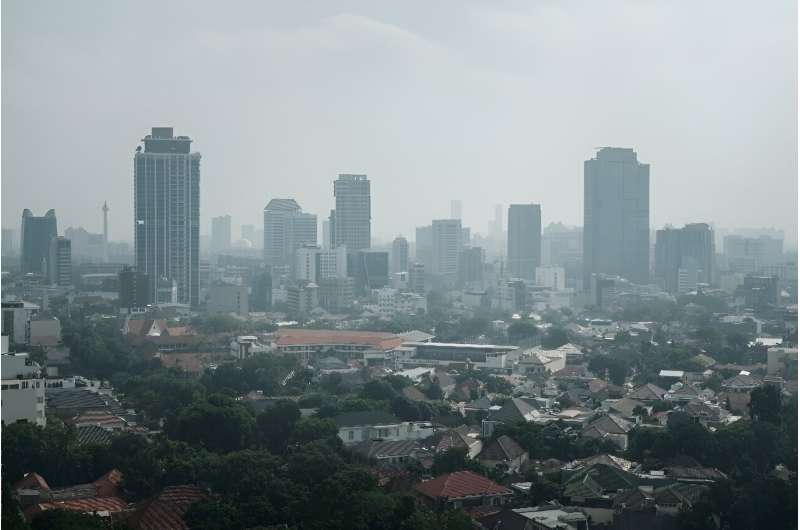Indonesian capital Jakarta topped global pollution rankings four days this week.
Indonesia's government on Friday blamed a pollution spike in traffic-clogged capital Jakarta on weather patterns and vehicle emissions after the city topped global rankings four days this week.
Jakarta and its surrounds form a megalopolis of about 30 million people, and its airborne concentration of the tiny particles known as PM2.5 has outpaced other heavily polluted cities such as Riyadh, Doha and Lahore of late.
Activists blame the high levels of toxic smog on clusters of factories and coal-fired power plants near the city, with Greenpeace Indonesia saying there were 10 such power plants within a 100-kilometer (62 miles) radius.
But senior environment and forestry official Sigit Reliantoro told reporters on Friday that the high levels of pollution between June and August, when Jakarta ranked as one of the most polluted cities in the world, were due to seasonal wind changes.
"In June, July and August, there is invariably an escalation in air pollution in Jakarta due to the dry air," Reliantoro said at a press conference.
President Joko Widodo last month warned of a long summer dry season in Indonesia that could stoke dangerous weather conditions and even wildfires across the archipelago nation, blaming it on the El Niño global weather phenomenon.
He said on Monday that the pollution spikes could be managed by building better public transport and shifting some of the economic and industrial burden from Jakarta to Nusantara, the new planned Indonesian capital set to open its doors next year.
This week's spikes in PM2.5 levels were so bad that Jakarta topped Swiss company IQAir's live ranking of air pollution in major cities at least once every day from Monday to Thursday.
According to the government's research, vehicle emissions account for 44 percent of air pollution, followed by the energy industry with 31 percent and manufacturing with 10 percent, Reliantoro said.
He appeared to blame older, more polluting vehicles for high levels of emissions, saying the government had implemented "periodic enforcement" of emissions tests for vehicles but there was not enough help from authorities outside Jakarta.
"Air pollution in the capital cannot be tackled alone by the Jakarta administration, it must involve surrounding areas," he said.
© 2023 AFP
























